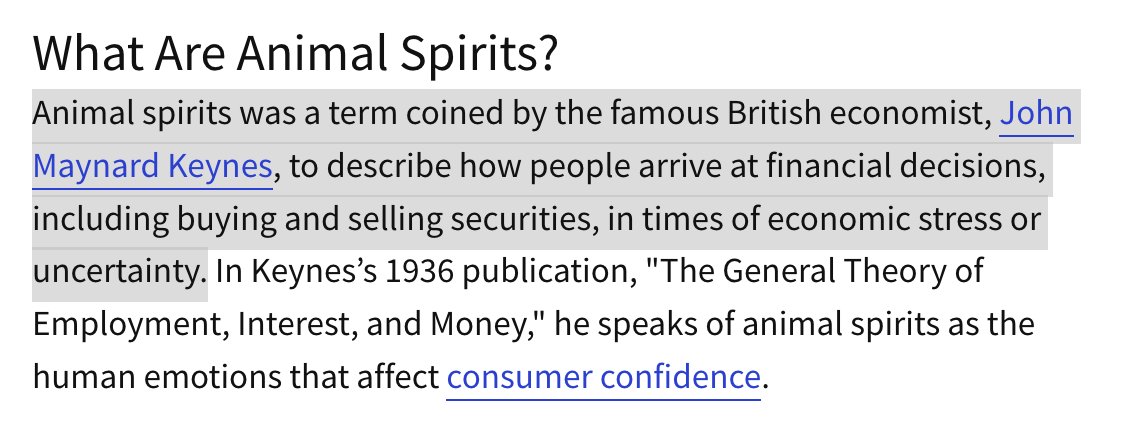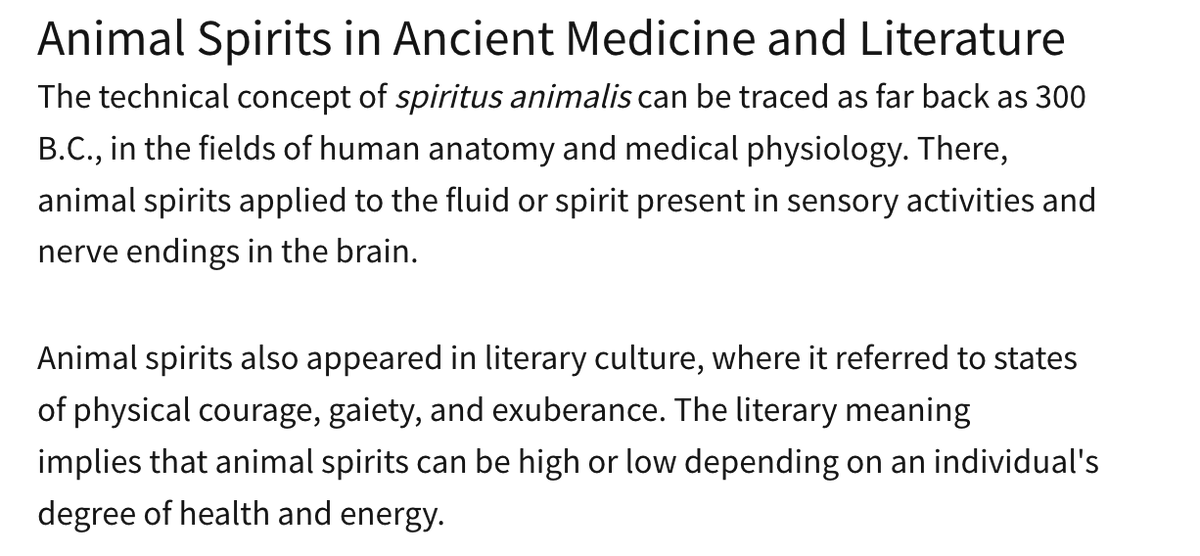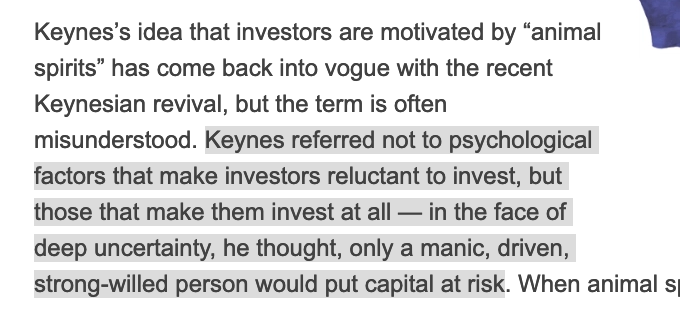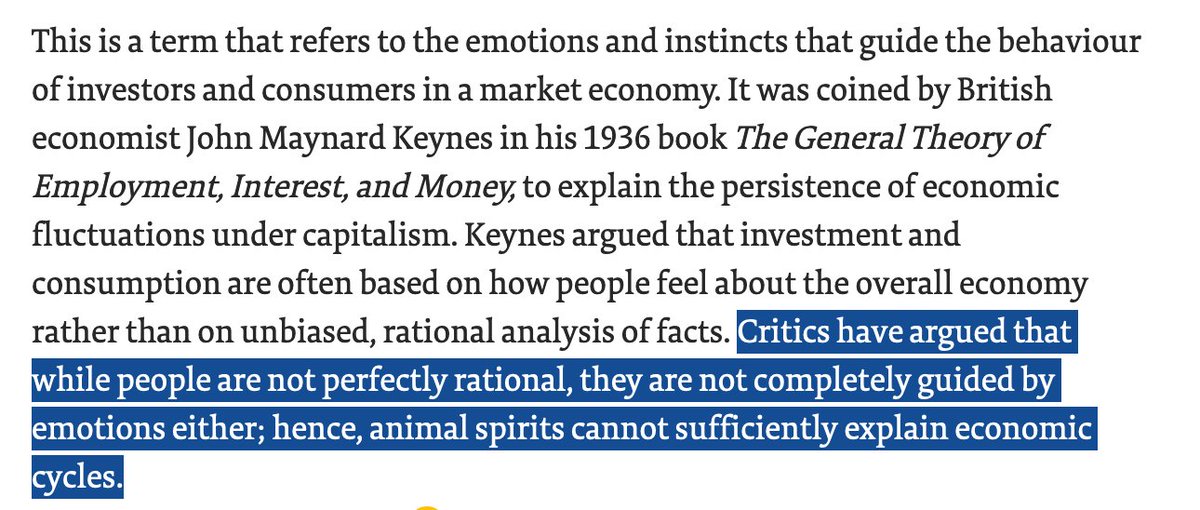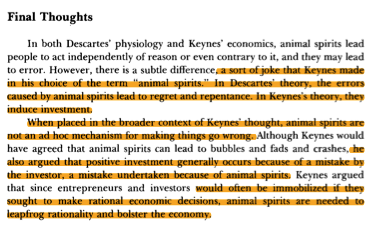I keep seeing the assertion that Keynes coined the term "animal spirits" in 1936 to talk about investors.
This was an *extremely* common term during the 19c, meaning something like "energy," in the sense of "life force." This was probably common knowledge when Keynes was young.
This was an *extremely* common term during the 19c, meaning something like "energy," in the sense of "life force." This was probably common knowledge when Keynes was young.
Keynes defined it as "a spontaneous urge to action rather than inaction." Actually, Investopedia has good detail on just how pervasive and far back the term goes:
It& #39;s one of those terms that started out as a medical theory, one that now appears bizarre, based on sort of a theory of "humors." There was "nervous energy" running through everyone& #39;s body, that sometimes became depleted. This was believed even in the late 1800s.
But for the most part, by the 1800s, it meant something closer to passion or vitality. It& #39;s hard for me to express how routine the usage was. Keynes was a reader, so I& #39;m sure he knew this. Here& #39;s Lincoln in 1846:
It& #39;s not that surprising that later readers didn& #39;t have the context, but I came across a brilliant thinker expressing exasperation with Keynes for not defining this mysterious concept, which he dismissed as nonsense. I& #39;m sure Keynes never thought he had to define it!
There was just a ridiculous amount of 20c scholarship that consisted of a totally botched understanding of the work of all the "greats," which they then passed off on the rest of society as the real thing. We& #39;re now a lot more confused than we need to be.
I mean, did these scholars ever read a book? Wikipedia notes it is discussed by Descartes, Newton, Emerson, Disraeli, Hobbes, Defoe, Austen, Marx, Wodehouse, Conan Doyle! Even if they hadn& #39;t, his meaning was plain. Yet they still wrote reams of nonsense.
Economists keep defining it as either confidence or irrationality. In reality, it describes something with no real normative implications: boldness. One can be bold without being confident or irrational.
From an economics journal in 1991--nope, that& #39;s not what he was saying either! Just that most people act out of "spontaneous optimism" rather than rational calculation. Nothing magically appears "when the conditions for rational action aren& #39;t present," whatever that means.

 Read on Twitter
Read on Twitter